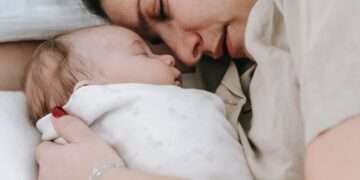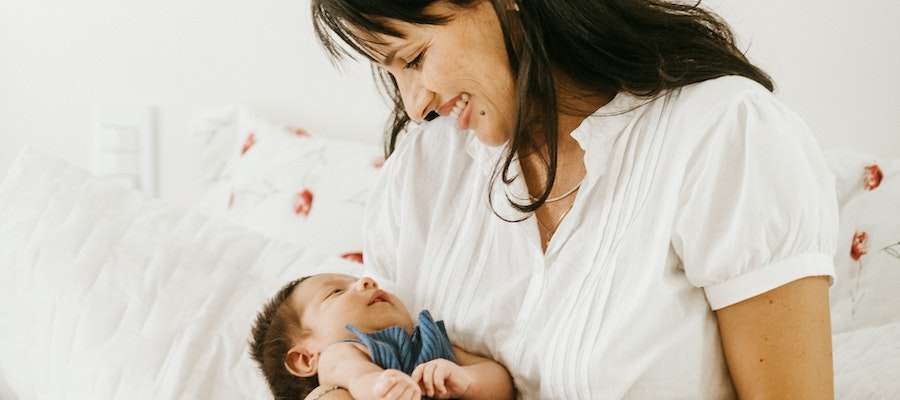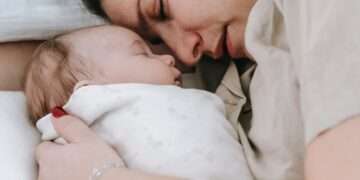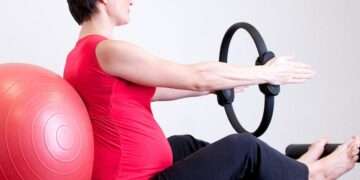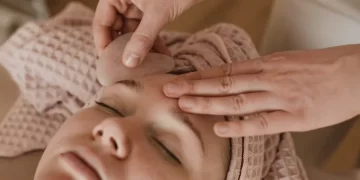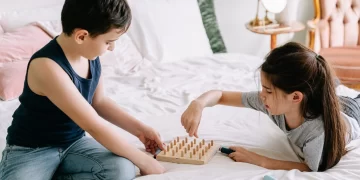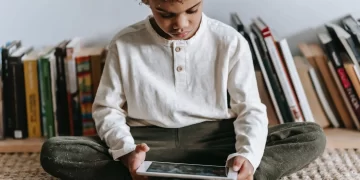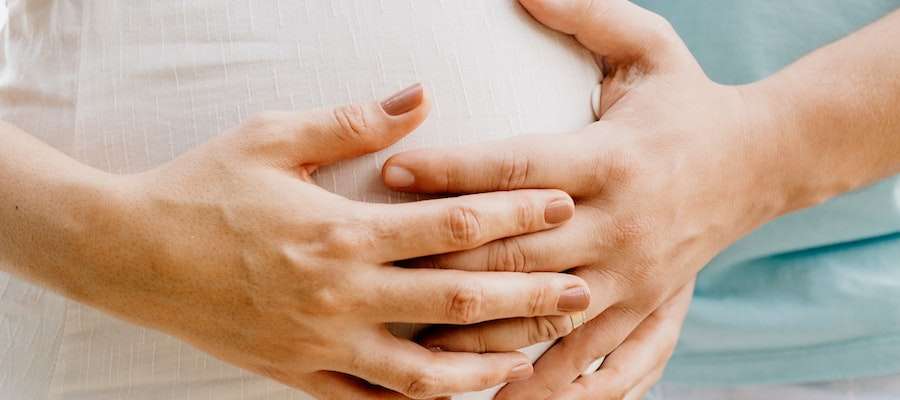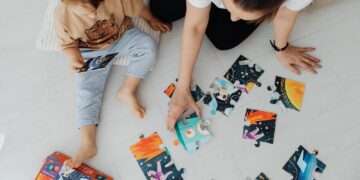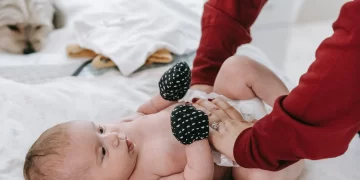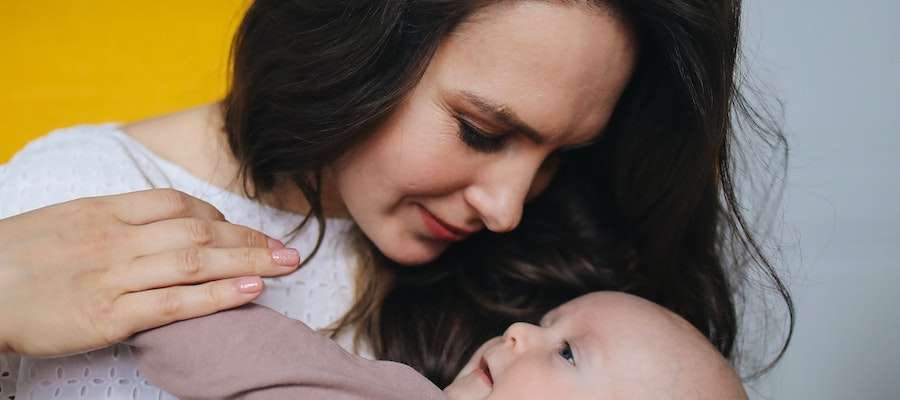
Preparing a safe room for your baby is a crucial step in ensuring their well-being and creating a nurturing environment. It is important to start with a safe and comfortable space for your child to sleep in if you want to create a healthy and safe room for them. Every parent can relate to the enormous, sometimes terrifying, responsibility of caring for a new baby. Infants require constant attention and care, and they rely on their caregivers to protect them from harm. A baby room serves several important purposes for parents and their newborns.
Create a safe and comfortable room for your child:
Here are the essential steps to help you create a secure and comfortable space for your little one:
- Baby-Proofing:
- Start by baby-proofing the room. Cover electrical outlets, secure heavy furniture to the wall, and remove any small items that could be choking hazards.
- Crib Safety:
- Ensure the crib meets current safety standards. It should have slats close enough to prevent the baby’s head from getting stuck and no drop sides. Avoid using crib bumpers or any loose bedding.
- Place the crib away from windows, blinds, or curtains to prevent strangulation hazards.
- Safe Sleep Environment:
- Create a safe sleep environment for your baby. Use a firm crib mattress with a fitted sheet.
- Avoid placing stuffed animals, pillows, or heavy blankets in the crib.
- Keep the room at a comfortable temperature, typically between 68°F and 72°F (20°C to 22°C).
- Monitor Placement:
- Install a baby monitor to keep an ear and eye on your baby while they sleep. Ensure all cords are out of reach.
- Window Safety:
- Install cordless window coverings to prevent strangulation hazards. Additionally, consider window guards for any windows low to the ground.
- Secure Furniture:
- Anchor heavy furniture like dressers and bookshelves to the wall to prevent tipping.
- Baby Gates:
- Use baby gates to restrict access to hazardous areas, such as stairs.
- Flooring:
- Make sure the flooring is clean, soft, and free of small objects that your baby could pick up and put in their mouth.
- Outlet Covers:
- Cover electrical outlets with safety caps to prevent your baby from sticking fingers or objects into them.
- Secure Cords:
- Secure cords from blinds, curtains, and electronics out of your baby’s reach.
- Toxic Plants and Substances:
- Remove any toxic plants or substances from the room. Store cleaning supplies and medications in locked cabinets.
- Corners and Edges:
- Use corner and edge protectors on furniture to prevent injuries if your baby bumps into them.
- Storage:
- Store baby products, such as diapers and baby wipes, within easy reach but out of your baby’s reach.
- Nightlights:
- Use a dim, plug-in nightlight to provide low-level illumination during nighttime feedings and diaper changes.
- Regular Inspection:
- Regularly inspect the room for potential hazards as your baby grows and becomes more mobile.
- Safety Education:
- Educate yourself and any caregivers about infant CPR and choking hazards.
- Emergency Contacts:
- Keep a list of emergency contact numbers, including your pediatrician and poison control, easily accessible.
Do you need a baby room?
Your baby will be just fine with the barest of baby essentials. It could be a corner of your bedroom you set up with a crib or a small study that you turn into the baby’s room. If you’re tight on space for a nursery don’t use that as an excuse to move! Millions and millions of babies have grown up in very small homes.
Keep Baby Safe in the Bedroom
Make sure to follow all safe-sleep guidelines. Babies should sleep on their backs on a firm mattress, with nothing in their crib or bassinet—no bumper pads, stuffed animals, toys or blankets. Dress the baby in a sleep sack or warm pajamas as needed but avoid overheating. Remove hats, socks, hair ribbons or any other accessories before putting your baby to bed.
Never leave a baby unattended on a changing table or bed, even for a second.
Avoid sleeping with your baby. As tempting as it is to doze off together, it is dangerous for an adult to sleep with a baby. You could roll onto your baby without realizing it or the baby could fall out of the bed or off the couch.
Keep Baby Safe in the Bathroom
Never leave your child unattended in the bath, near the bath, or near any other standing water, including the toilet bowl. You can buy a safety lock to keep the toilet lid closed.
Turn the dial on your hot water tank so it can’t get hotter than a maximum of 120 degrees, to prevent scalding accidents.
Make sure your child can’t access medications, cleaning supplies, toiletries or appliances such as hair dryers. Put these items up high or behind a door with a safety lock (an automatic locking mechanism is best in case you forget to use the lock). Never leave an appliance plugged in near water or anywhere a child could pull the appliance down onto their head.
Keep Baby Safe in the Kitchen–
Keep knives and other sharp objects out of children’s reach and behind safety locks.
Put a safety lock on cabinets containing household cleaners and plastic bags or store them high, out of a child’s reach. Laundry detergent and dish detergent pods can be attractive to babies and small children, and they are poisonous, even in very small amounts.
When cooking on the stove or using the oven, keep children out of the room or at a safe distance. Start teaching babies early that the stove is “Hot! Ow!”
Keep Baby Safe Throughout the Home–
Keep small objects, including older children’s toys, out of baby’s reach and monitor any areas where the baby plays for coins, pills or other small items. Even gravel on shoes from outside can pose a risk. Any object that can fit in a toilet paper tube can fit into your child’s mouth and is a choking hazard; pills and small batteries create poisoning risks as well.
Here are some key reasons why a dedicated baby room is essential:
- Comfort and Safety: A baby room is designed to provide a safe and comfortable environment for the infant. It’s equipped with a crib or bassinet, baby-friendly furniture, and babyproofing measures to reduce potential hazards.
- Sleep and Routine: Babies need plenty of sleep, and a baby room helps establish a consistent sleep routine. A quiet and dark room can promote better and longer sleep, helping both the baby and parents get the rest they need.
- Organization: A baby room is a designated space to store baby essentials like diapers, clothing, feeding supplies, and toys. This makes it easier for parents to stay organized and find what they need quickly.
- Bonding: Spending quality time with the baby is crucial. A well-designed baby room provides a space for parents to bond with their child through activities like feeding, changing, and reading.
- Independence: As the baby grows, having their own room encourages independence and a sense of ownership. It’s a space where they can play, explore, and eventually sleep on their own.
- Stress Reduction: A dedicated baby room can reduce stress for parents. It minimizes clutter in other parts of the house and provides a tranquil space for both the baby and parents.
- Aesthetic Appeal: Many parents enjoy decorating the baby room in a way that reflects their personal style and creates a soothing atmosphere. A well-decorated nursery can be a source of joy and pride.
A few benefit for you:
Baby room not just your children that can take positives from nursery. From a parent’s perspective, looking after an energetic preschoolers can be pretty full on, so even for just a few hours a week, it can provide some much needed ‘me-time’. Raising a child is tremendous work, and while they are your everything, you need time and space to be yourself, even if it’s to catch up on chores (or have time with friends!)
Work-Life Balance
Creating the perfect work-life balance is what most of us strive for, don’t we? Whilst nothing is truly perfect however, nursery time for your child can help you begin to build a comfortable balance between the two.
More Quality Time Together
With your child keeping busy and active at nursery, it takes the pressure off you to do things, to think up educational, fun activities or to keep them entertained. Without this added pressure, you can relax more and enjoy your quality time, just being together.
FAQ
How can I make my baby room cute?
An accent wall is a great option to spice up your nursery decor! Pick a wall in the baby room and incorporate patterned wallpaper, high-contrast art, or easy-to-remove decals that go with your room’s theme.
Why is a kids room important?
On the emotional front, a child’s room is their safe haven. It’s a space where they can express themselves freely. A room that reflects their interests and personality can boost their self-esteem and sense of identity.
How do I make my kids room special?
Popular 5 design tips for a cozy kids room-
- Communicate who lives in the room! Decorate the nursery walls with personal accessories that tell a little more about who lives there.
- Create cozy reading nooks.
- World maps and letter prints.
- Muted walls and colorful accessories.
- Make room for change and variation.
At what age do kids need a room?
Every Parents want to make the move when it feels right to them emotionally will need to make that decision on an individual basis. One caregiver may feel happy with the move at 4 months, while another might not be ready until their child is 2 years old.
How do you make a baby room?
Top 10 tips for designing your baby room-
- Be practical.
- Be consistent.
- Create your own mood board.
- Keep it simple.
- Choose soft, tranquil colours.
- Choose adaptable decor.
- Think safety.
- Choose key pieces first.
- Balance form and function
- Think outside the box.
Conclusion
In summary, a baby room is not just a physical space; it’s a place of comfort, safety, and bonding. It plays a crucial role in promoting healthy routines, organization, and peace of mind for parents, making it an essential part of preparing for a new arrival. By taking some time to create the perfect space, you can help your child get a good night’s sleep possible.
As a parent, one of your main concerns is keeping your children safe and healthy. Creating a safe and healthy sleeping environment for your baby is just as important as protecting them during waking hours. Ensuring a safe room will give you peace of mind and help your baby explore and grow in a secure environment.
kidsmodelistamagazine
Table of Contents
© 2023 KM.magazine - Premium Guide to Baby&Mom Blogs-magazine by KM.magazine.

